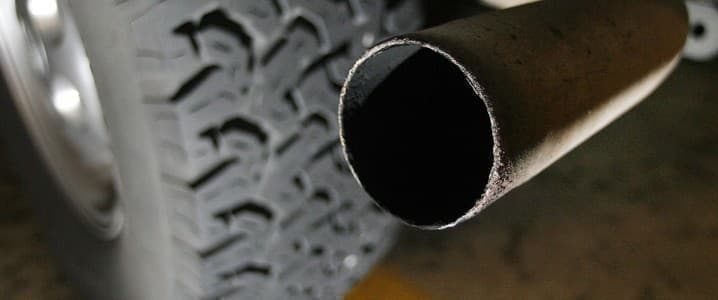The effects of climate change are becoming increasingly clear and besides the effects on our natural environment, it could cost the global economy a staggering $1 trillion over the next five years in crumbling infrastructure, reduced crop yields, health problems, and lost labor as per the Carbon Disclosure Project (CDP).
It is, therefore, disheartening to learn that the people set to bear the full brunt of climate change are also the least responsible for causing it.
An Oxfam study has found that the world's richest 10% emit 60x as much carbon as the world's poorest 10%. The carbon disparity gets even more stark as you move higher up the echelons of wealth: The world's richest 1% emit 175x more than the poorest 10% and 30x as much as the poorest 50%.
Oxfam is a confederation of 20 independent charitable organizations whose main focus is alleviating global poverty.
No room for development
The same study says that the wealthiest 10% of people--or 64 million people--are responsible for producing half of the planet's individual-consumption-based fossil fuel emissions compared to only 10% of emissions by the poorest 50 percent--or 3.5 billion souls. Yet these 3.5 billion people are "living overwhelmingly in the countries most vulnerable to climate change," according to the report. Individual consumption--as opposed to consumption by governments as well as international transport--makes up nearly two-thirds of global climate emissions.
The Oxfam report says that the world's wealthiest nations need to radically transform and clean up their act; otherwise, they'll gobble up the entire carbon budget allocated to the planet and leave poorer nations with no room for development.
Indeed, Oxfam argues that without accommodations, poorer nations will have to choose between either alleviating poverty or protecting the climate, all because high emission rates by wealthier nations left them little or no wiggle room.
Stranded assets
Experts have warned that nearly $900 billion worth of reserves--or about one-third of the value of big oil and gas companies--are at risk of becoming worthless as market and policy forces continue to undercut hydrocarbon economics due to the threat of climate change.
In effect, these companies could see a third of their value evaporate if governments aggressively attempt to restrict the rise in temperatures to 1.5C above pre-industrial levels for the rest of this century and avert catastrophic climate change as per Intergovernmental Panel on Climate Change (IPCC) estimates. Related: Natural Gas Prices Explode On Stronger Demand
Consequently, investors are likely to increasingly price in the risk of asset write-downs by the world's leading oil and gas companies unless a solution to the ongoing climate change is found within the next decade.
Indeed, Big Oil has clearly read the signs of the times as a massive wave of asset write-downs overtakes the industry.
Royal Dutch Shell (NYSE:RDS.A) plans to write down a staggering $22 billion in assets as the ominous warning of 'Lower Forever' fired by its own Chief Executive Ben van Beurden three years ago reverberates.
ExxonMobil (NYSE:XOM) has warned of a possible 20% write-down in its oil and gas assets.
Chevron Corp. (NYSE:CVX), recently reported a large $10.4B shale asset write-down.
BP Plc. (NYSE:BP) recently warned that oil demand might never recover as governments begin to get more aggressive with climate targets.
Shell, BP, and ENI have announced major business model restructuring with Shell saying it plans to slash up to 40% off the cost of producing oil and gas so it can overhaul its business and focus more on renewable energy and power markets.
"We had a great model but is it right for the future? There will be differences, this is not just about structure but culture and about the type of company we want to be," a senior source at the company told reporters.
Some experts see carbon capture, storage, and utilization (CCSU) technologies as the solution to this growing conundrum. Wal van Lierop of Chrysalix Venture Capital and an investor in Canada-based carbon capture startup Svante has proposed creating policies that will make carbon markets not only feasible but profitable.
Oil and gas companies can choose their own poison; however, one thing is clear at this point: It's hardly going to be business as usual for the global oil and gas industry even after Covid-19 is long gone.
By Alex Kimani for Oilprice.com
More Top Reads From Oilprice.com:
- The Debt Crisis Is Mounting For Oil Economies
- Shell May Cut Upstream Oil Operations By 40%
- How Saudi Arabia Put OPEC's Future At Stake

















